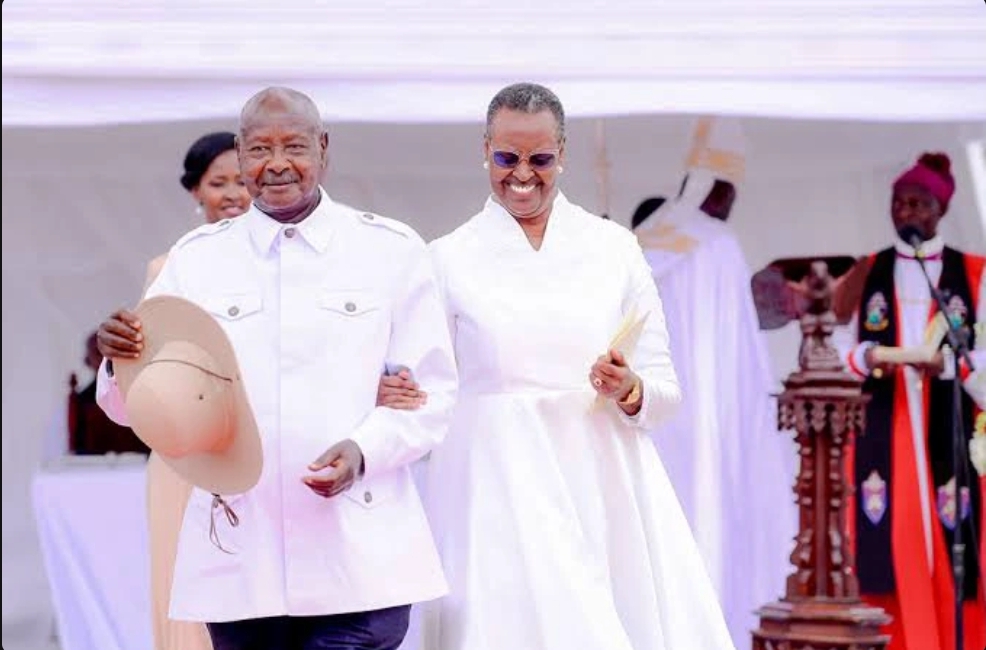Healing Old Wounds: Why Buganda Should Embrace Museveni’s Apology

The kingdom played a critical role in Museveni’s rise to power during the 1981–1986 bush war, hosting his guerrilla campaign in the jungles of Luweero. Thousands of lives were lost, and the scars of that conflict linger.
On May 25, 2025, at the Kololo Ceremonial Grounds, President Yoweri Museveni and First Lady Janet Museveni did something unprecedented in their nearly four-decade rule: they publicly apologized to the people of Uganda, with a special nod to Buganda, for the mistakes, negligence, and shortcomings of their administration.
This rare act of humility, delivered during the Light Up Uganda for Jesus Crusade, has sparked heated debate, with reactions ranging from cautious optimism to outright skepticism.
As a kingdom and a people central to Uganda’s history and identity, Buganda now faces a pivotal moment. I urge the Baganda to consider accepting this apology—not as an erasure of past grievances, but as a bridge to reconciliation and progress.
Buganda’s relationship with the central government has been complex, marked by moments of alliance and deep-seated tensions.
The kingdom played a critical role in Museveni’s rise to power during the 1981–1986 bush war, hosting his guerrilla campaign in the jungles of Luweero. Thousands of lives were lost, and the scars of that conflict linger.
Over the years, unfulfilled promises—such as the full return of kingdom properties (Ebyaffe)—and incidents like the 2009 riots, where over 40 Baganda lost their lives, have strained ties.
The National Resistance Movement (NRM) once enjoyed strong support in Buganda, but the 2021 elections saw a dramatic shift, with the region overwhelmingly backing the opposition National Unity Platform (NUP).
Against this backdrop, the Musevenis’ apology carries weight, acknowledging “laxity, negligence, and lack of diligence” that left many grassroots supporters feeling “angry, neglected, or forgotten.”
Skeptics, including NUP leader Robert Kyagulanyi (Bobi Wine), have dismissed the apology as political theater, pointing to ongoing issues like corruption, abductions, and suppression of dissent.
Their concerns are valid—words alone cannot heal decades of pain or address systemic failures. Yet, outright rejection risks missing an opportunity for dialogue.
Buganda Kingdom spokesperson Israel Kazibwe cautiously welcomed the gesture, noting that reconciliation is a hallmark of leadership and that the kingdom is ready to work with the government for the benefit of both Buganda and Uganda. This openness reflects wisdom: progress requires engagement, not estrangement.
Accepting the apology does not mean absolving the government of accountability. It means recognizing a leader’s willingness to admit fault—a rarity in African politics, as former MP Wilson Sossion noted, comparing Museveni’s gesture to Mwalimu Julius Nyerere’s apology before stepping down in Tanzania.
The Baganda, a people rooted in values of ubuntu and communal harmony, have long understood that forgiveness is not weakness but a step toward healing.
By accepting this apology, Buganda can set conditions for meaningful change: the return of remaining kingdom assets, compensation for victims of past violence, and tangible investments in infrastructure like roads and hospitals, as suggested by Ronald Mundu, Speaker of Miteete Sub-county in Sembabule.
The timing of the apology, less than a year before the 2026 elections, invites suspicion of political motives. Analysts like Prof. Sabiti Makara argue it’s a strategic move to regain Buganda’s support, a region critical to electoral success.
But even if politically motivated, the apology opens a door. Buganda can leverage this moment to demand action—whether it’s addressing land disputes, curbing corruption, or respecting the monarchy’s cultural role.
As Kazibwe noted, the kingdom has no bad intentions and seeks collaboration for the greater good. This is a chance to hold the government to its word, ensuring that promises translate into policy.
To the Baganda, I say: let us not let pride or pain close the door to progress. Museveni’s apology, however imperfect, is a crack in the armor of power, a moment where a leader has knelt before history.
By accepting it, Buganda can lead the way in showing that reconciliation is not capitulation but a demand for justice and unity.
Let us engage, negotiate, and build a future where the kingdom’s pride and Uganda’s prosperity are one and the same. The wounds of the past are deep, but the path to healing begins with a single step. This could be it



0 Comments